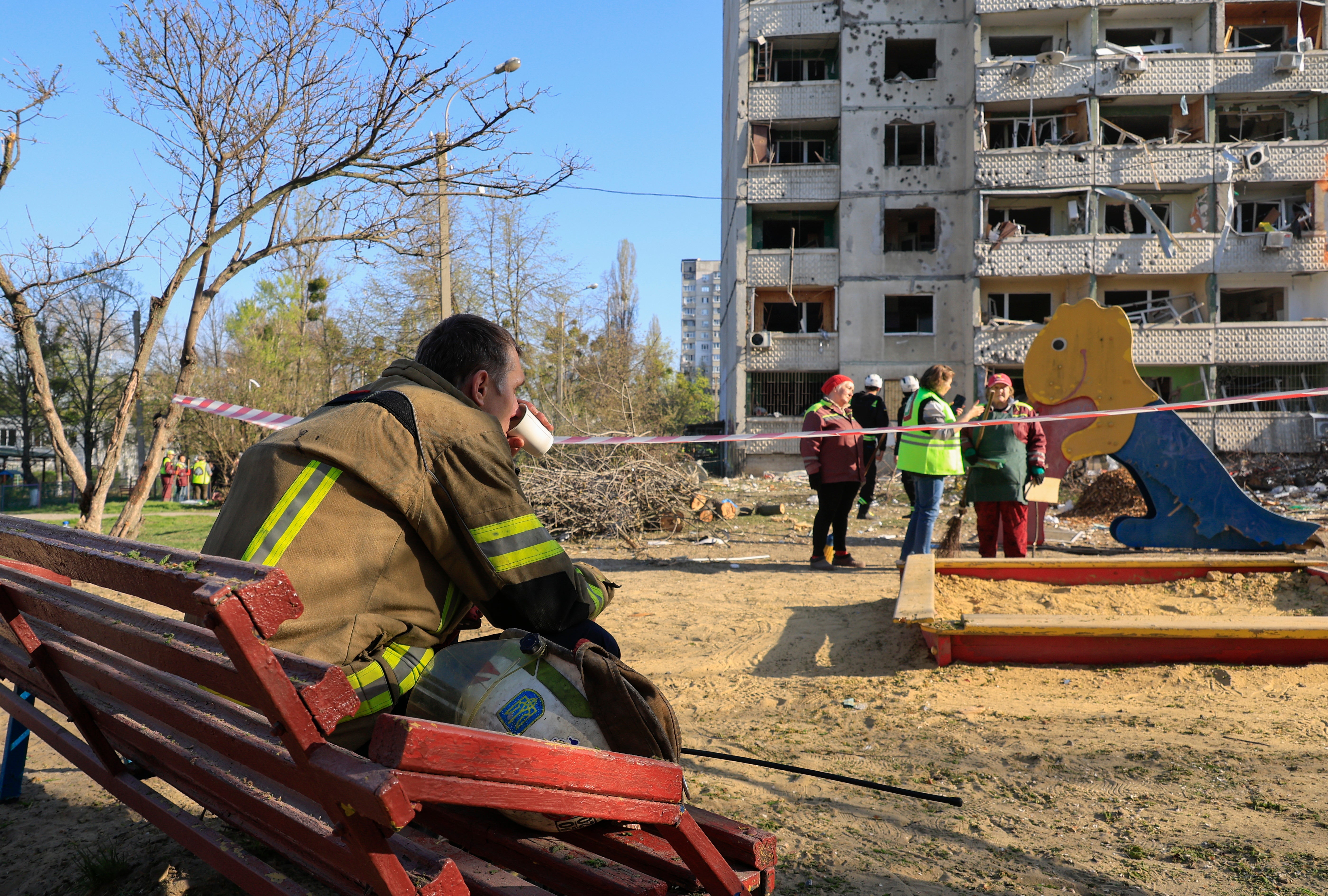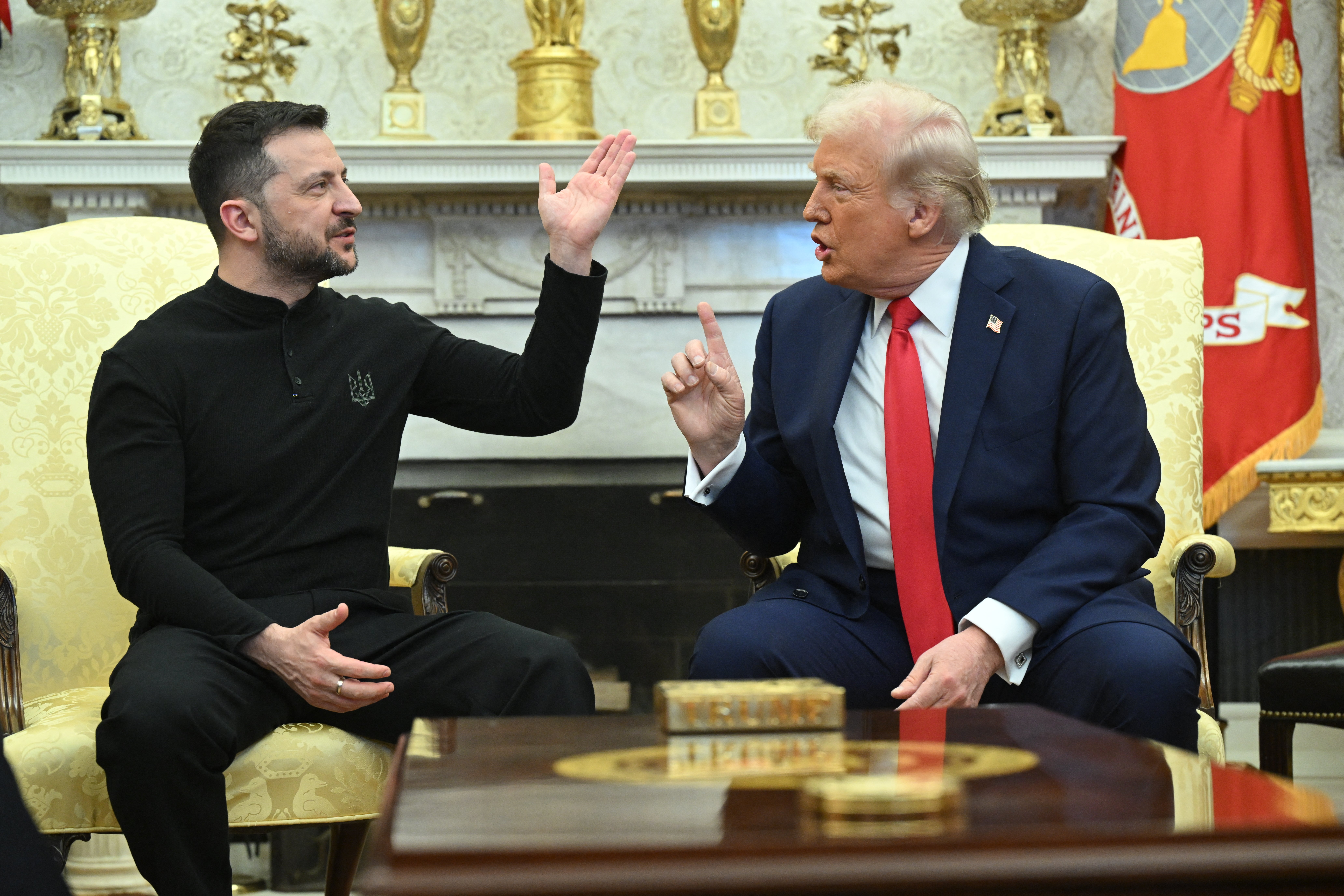The US will walk away from talks aimed at brokering a Russia-Ukraine peace deal within days unless there are clear signs that an agreement can be reached, US secretary of state Marco Rubio has warned.
Mr Rubio’s threats came at the start of the Easter weekend, after Russia’s latest attack on Ukraine left one person dead and 98 injured in Kharkiv on Friday morning. US officials said last month that the US president hoped to secure a ceasefire agreement by 20 April, a symbolic date on which Western and Orthodox celebrations of Easter will overlap this year – and one that is fast approaching, with no deal currently in close sight.
Thursday showed signs of some progress in the US talks with Ukraine, after Donald Trump said he expected to sign a minerals deal with Kyiv next week. Negotiations had been delayed after his explosive Oval Office clash with Ukraine’s president Volodymyr Zelensky in February.
But in another stark shift, after meeting with European and Ukrainian leaders on Thursday, Mr Rubio said Mr Trump was prepared to declare “Well, we’re done” on the peace talks, adding that the US has “bigger challenges that we need to figure out”.
“There’s no one saying this can be done in 12 hours,” he said. “But we want to see how far apart it is. We need to figure out here, now, within a matter of days, whether this is doable in the short term, because if it’s not, then I think we’re just going to move on.”
There was no immediate comment from Paris, London, Berlin or Kyiv on Mr Rubio’s statement, although three European diplomatic sources told reporters that his comments reflected growing frustration in the White House over Russia’s intransigence on ending the war.
Kremlin spokesperson Dmitry Peskov responded that some progress on a peace settlement had already been made, insisting that Russia is striving to resolve the conflict. He said that Moscow remained open to dialogue with Washington but that contact was difficult.
Vice-president JD Vance added later on Friday that the US is “optimistic that we can hopefully bring this war, this very brutal war, to a close”.

The discussions in Paris on Thursday – which Mr Zelensky’s office described as constructive and positive – were the first substantive, high-level and in-person talks on Mr Trump’s peace push at which European powers have been present.
Mr Rubio said the Europeans have a central role to play in any peace pact – especially as their sanctions on Russia, over which Washington has no control, would likely need to be lifted in order to secure an accord. He called the talks “constructive” and said the response to the US peace framework he had presented was “encouraging”.
Mr Trump promised during his election campaign to end the war in Ukraine within his first 24 hours in the White House. He then moderated that claim on taking office, as obstacles to a deal mounted.

Mr Trump has put pressure on both sides to come to the negotiating table, threatening tougher sanctions on Russia or an end to billions of dollars’ worth of US military support for Kyiv. Both Ukraine and Russia took part in US-brokered talks in Saudi Arabia, which resulted in a partial ceasefire but nothing more.
Russia has kept up a series of deadly strikes on Ukrainian cities, according to officials there, wounding scores of civilians days after missiles killed at least 34 during Palm Sunday celebrations in the northern city of Sumy – an attack Mr Trump called a “mistake”. The strike on Kharkiv, Ukraine’s second-largest city, in the early hours of Friday, struck a “densely populated” neighbourhood four times, its mayor Ihor Terekhov reported.
The US and Ukraine do, however, appear to be nearing a long-delayed deal to grant the US access to Ukraine’s vast mineral resources, which has been intertwined with Mr Trump’s push for peace. Mr Trump announced on Thursday, “We have a minerals deal,” and Ukraine’s economy minister said the following day that the two countries had signed a memorandum of intent, with the potential that a more comprehensive agreement could be arrived at later.

But if Washington walks away from the ceasefire talks, efforts to broker a peace will likely flounder, because no other nation is able to bring similar pressure on both Moscow and Kyiv.
Russian president Vladimir Putin has said he wants Ukraine to drop its ambitions to join Nato, Russia to control the entirety of four Ukrainian regions it has claimed as its own, and the size of the Ukrainian army to be limited. Kyiv says those demands are tantamount to demanding its capitulation.
Campaigners and charities horrified by revelations about impact of Trump’s USAID cuts
Starmer’s impossible choice between a Trump trade deal and a Brexit reset
U.S.-born citizen held by ICE in Florida jail
Russia-Ukraine war latest: Kremlin responds to US threat to abandon peace talks
Slovakia’s pro-Russian leader rejects a call by the EU not to attend parade in Moscow
Two British tourists among four killed after cable car crashes to ground in Naples




!["[T]he First and Fifth Amendments Require ICE to Provide Information About the Whereabouts of a Detained Person"](https://images.inkl.com/s3/publisher/cover/212/reason-cover.png?w=600)


